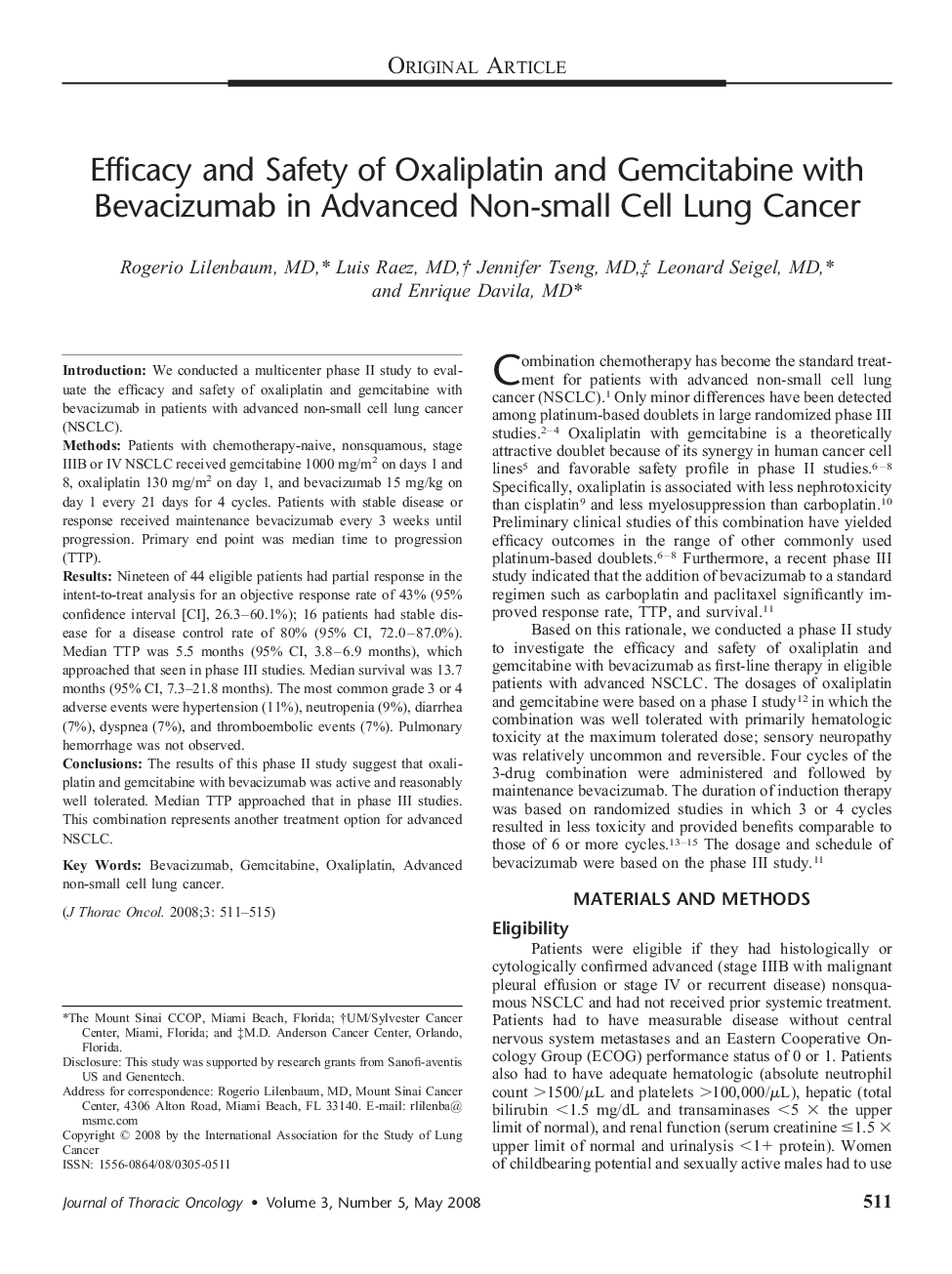| Article ID | Journal | Published Year | Pages | File Type |
|---|---|---|---|---|
| 3992440 | Journal of Thoracic Oncology | 2008 | 5 Pages |
IntroductionWe conducted a multicenter phase II study to evaluate the efficacy and safety of oxaliplatin and gemcitabine with bevacizumab in patients with advanced non-small cell lung cancer (NSCLC).MethodsPatients with chemotherapy-naive, nonsquamous, stage IIIB or IV NSCLC received gemcitabine 1000 mg/m2 on days 1 and 8, oxaliplatin 130 mg/m2 on day 1, and bevacizumab 15 mg/kg on day 1 every 21 days for 4 cycles. Patients with stable disease or response received maintenance bevacizumab every 3 weeks until progression. Primary end point was median time to progression (TTP).ResultsNineteen of 44 eligible patients had partial response in the intent-to-treat analysis for an objective response rate of 43% (95% confidence interval [CI], 26.3–60.1%); 16 patients had stable disease for a disease control rate of 80% (95% CI, 72.0–87.0%). Median TTP was 5.5 months (95% CI, 3.8–6.9 months), which approached that seen in phase III studies. Median survival was 13.7 months (95% CI, 7.3–21.8 months). The most common grade 3 or 4 adverse events were hypertension (11%), neutropenia (9%), diarrhea (7%), dyspnea (7%), and thromboembolic events (7%). Pulmonary hemorrhage was not observed.ConclusionsThe results of this phase II study suggest that oxaliplatin and gemcitabine with bevacizumab was active and reasonably well tolerated. Median TTP approached that in phase III studies. This combination represents another treatment option for advanced NSCLC.
